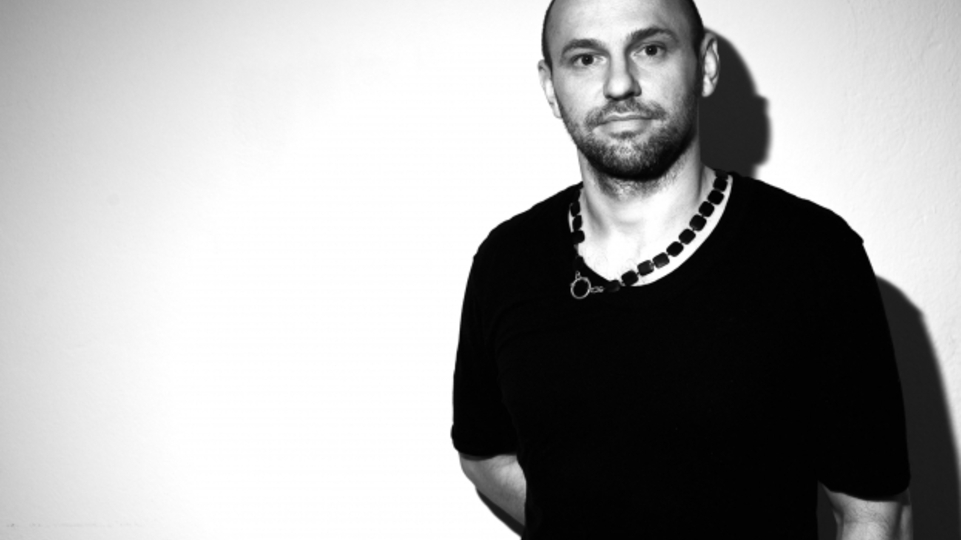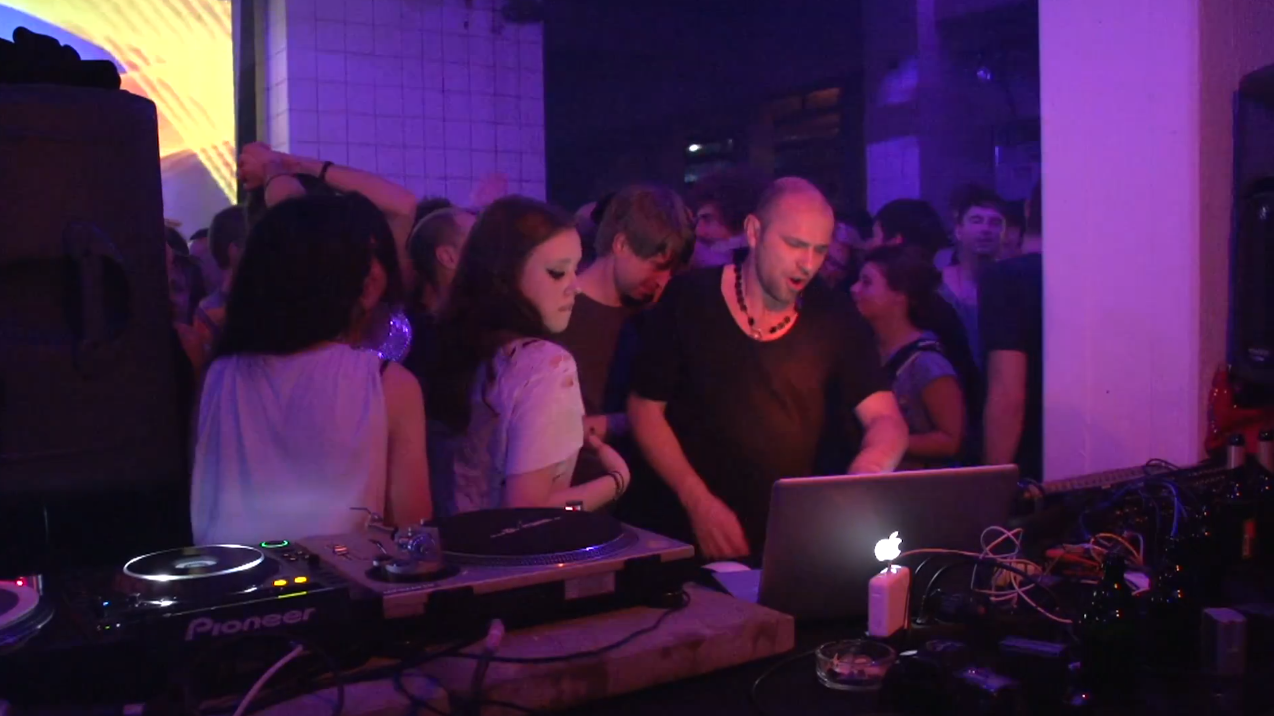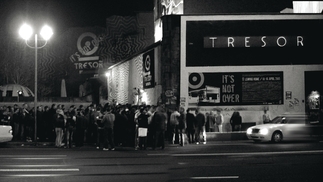HENRIK SCHWARZ: A CLASSIC APPROACH
Classical arrangements of his most memorable tunes for an orchestra? Is that taking it too far? Not in Schwarz's hands...

“I just like making music and I like when things change.” DJ Mag is talking to Henrik Schwarz about his new classical music album, ‘Instruments’, which features seven of his own tracks arranged for the strings (violins, violas, cellos and double bass) and low woodwinds of the Tokyo Secret Orchestra... and no electronic bass. That modest statement, seemingly simple but hiding a world of complexity, creativity and drive, could well sum up Schwarz’s career, of which ‘Instruments’ will certainly be a high point... until he decides to up the ante again.
That’s the thing about Henrik Schwarz — he’s not someone who takes the easy option, which is probably why the Stuttgart Chamber Orchestra first approached him in 2011. “They were playing at the Stuttgart Jazz Open, which is a big festival in south Germany,” Schwarz remembers,” and they had a one hour slot free. Somebody had the idea of working with a producer, so that's when they asked me if I would be interested.”
Thus began a project that has taken him and his arranger Johannes Brecht four years and spanned several performances, orchestras and approaches. “Well, the first one was Stuttgart, which was only strings; 25 strings, drums and electric bass.
And when I started rehearsing, I thought, 'It’s so nice... but something's wrong'. Because I thought all those beats make it cheesy. And I didn't like that, so for the next round we were in Zurich [with the Ensemble of Tonhalle Zurich at their venue in 2012]. They only gave us five people from the orchestra, so we had to do a completely different orchestration. That's when I said, 'Let's remove the beats’. Then we brought in woodwinds, as before we just had strings, and added percussion and stripped everything down.
Now, I really liked the sound of the bassoon and the clarinet, together with the strings, so the next set in Berlin [with the Deutsches Kammerorchester at the Berlin Philharmonic Hall], when we had 25 people, all the drums were gone and it was half woodwinds and half strings. And that sounded really nice, but still there were too many short notes — which are very difficult for those instruments to play — so I thought we should make it easier for them; because if it's easy, it feels light.
And then we were in Amsterdam [with the Nederlands Kamerorkest at the Concertgebouw in 2013] which was the first try for this [with no bass], and then we went to Tokyo. That was really good," he remembers about the November 2013 concert that prompted this album. An RBMA online film shows the level of skill employed by conductor Emi Akiyama and her ensemble in a Buddhist temple setting, fittingly for this meeting of two different musical cultures.
PUSHED TO THE LIMIT
Artistic considerations aside, let’s be frank — most house DJs announcing an album of classical music would get pretty short shrift; but when you look at Henrik Schwarz’s career, this seems very much like the logical next step in his 13-year history of making electronic music firmly on his own terms. Back in 2002, Gilles Peterson picked Schwarz out of the choir by playing his track, ‘Marvin’, from his debut ‘Supravision’ EP on Moodmusic, on his Worldwide BBC radio show.

Then Schwarz’s life as a graphic designer in Berlin changed forever — taking in over 200 remixes (most notable for us are his efforts for Coldcut featuring Robert Owens, ‘Walk A Mile In My Shoes’, in 2006, which is featured here as ‘Wamims’ and the career-defining ‘Feeling You’ by Omar featuring Stevie Wonder, in 2009). Never mind remixes, though, everyone does those... but not everyone shuns club and festival DJing in order to play live the way Schwarz does; imbuing his performances with vigour as he pushes his own tracks to the limit and remixes them on the fly. His Boiler Room Berlin performance from late 2012 is a good example of what a live club set SHOULD be. Plus he also does a live show with Frank Wiedemann of Âme, the Schwarzmann project, that last saw action at the closing of Trouw and, “...is totally different to ‘Instruments’, as we don’t rehearse at all, we just have as many drum machines on stage as possible and then we play!”
Then away from the dancefloor, Schwarz provided a soundtrack for a silent film (The Cabinet of Dr Caligari, a seminal piece of '20s German cinema which critics have called “the first true horror”) alongside Innervisions associates Dixon and Âme at Camden’s Roundhouse in 2011, and he worked on the ‘Masse’ ballet project that united Berghain and the Berlin State Ballet in 2013 (as a side-note, can you imagine the Royal Ballet Company working with Fabric? Oh, Berlin...). Plus he’s made albums with noted jazz pianist Bugge Wesseltoft (‘Duo’ in 2009) and bassist Dan Berglund (as ‘Trialogue’ in 2014) that push the boundaries of electronic music, chamber music and jazz... and he also performs with experimental pianist Nik Bärtsch. Now do you see why a classical music project seems so inevitable?
CULTURAL VALUE
So returning to his first break, DJ Mag has to ask how it feels to recast ‘Marvin’ as a piece of classical music? He replies unhesitatingly, “I think especially 'Marvin' — which was an important record for me, as when Gilles played it I got those calls from all over the world the next day — I feel that this is the track on the album that really sounds different; even for me it sounds [like a] very weird, acoustic piece, which totally makes sense; it's far away from the original and it has a lot of space in it.
You can connect it to the original, of course, but what I wanted to do was somehow capture the cultural value of electronic music and somehow take it to another place — and for this one, I feel that it works quite well."
The ‘Instruments’ version of ‘Marvin’ hinges on just one woodwind note, upon which various others build until it seems like the whole orchestra is undulating along, bassoon and bass clarinet moving to and fro and building to a crescendo, then starting off again in the same way.
Here a double bass echoes proceedings, as the dubbed-out electronic bass of the original did, but it’s not an isolated snare that anchors the track, it’s that woodwind. ‘Wamims’, which we mentioned earlier, is so warm and rolling, but instead of the electronic soul of Schwarz’s original remix, it’s now operatic in scope, swapping heavier synth for insistent strings as two cultural values collide.
That sense of capturing electronic music’s cultural value, DJ Mag feels, is at the crux of this project for Schwarz. He’s doing this to push it beyond its usual limitations — and to see if it still works in the modern home of ‘traditional’ music culture, the classical music hall.
So to conclude, we ask him: is classical music still relevant to young people? He replies, tellingly, “It isn’t relevant because young people don’t go and hear it; but they should go, because the music is relevant”. Well, he would know.
Words: MANU EKANAYAKE





